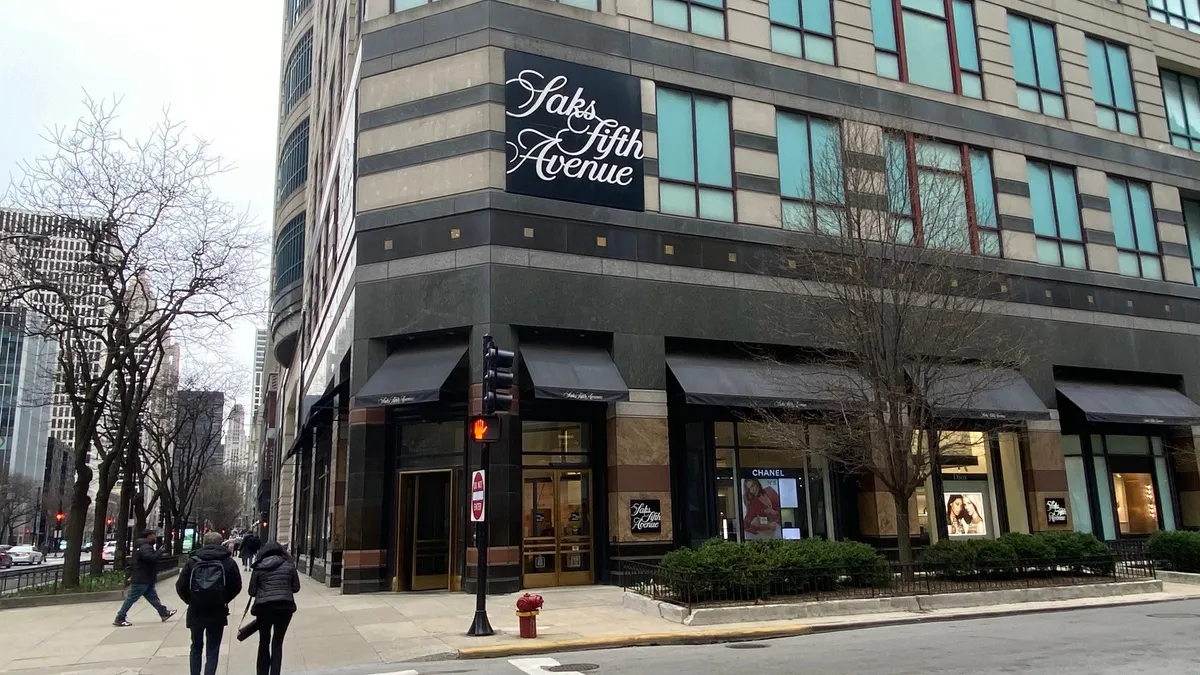This is a guest post written by Andrew Grant, a partner at the law firm Perkins Coie, LLP. He is the chair of Perkins Coie's Outdoor Industry Group. Views are the authors own.
Retail as a business is hard. Retail bankruptcies continue at a rapid rate, leaving some commentators to predict that the days of traditional retail are numbered.
Despite predictions about the death of brick-and-mortar shops, recent trends are revealing what the future of retail might look like. Gen Z has shown an affinity for brick-and-mortar retail just as the buzz about "experiential retail" as a potential antidote for the ailing brick-and-mortar retail segment grows louder. The outdoor industry, looking to capitalize on the popularity of outdoor apparel and stave off the decline in outdoor specialty retail, is taking notice.
But, what exactly is "experiential retail"? Moreover, does experiential retail mean the same thing for a cosmetics store as a ski shop? And, from a practical and legal perspective, how do you build and operate a new retail experience?
Experiential retail is often described as exactly that — retail where consumers have an "experience" other than, or in addition to, shopping — this includes everything from cafes to Instagram walls. But stores have been designed to lure customers in and provide additional experiences or services for decades. So, what makes outdoor industry experiential retail different?
In a word, community.
At its core, the outdoor industry is a community of people who want to experience the outdoors. Recreationalists' particular hobbies may vary widely, but they all share a love of the outdoors and an affinity for shopping for things to play with outdoors.
We, as humans, need community. Research suggests we also need time outside as preventative or therapeutic measures to combat a host of maladies, from anxiety to depression to obesity and beyond.
Tapping into this need for community and for time outside by providing a venue for people to shop, socialize and gather around shared interests, can revitalize outdoor industry brick-and-mortar retail and serve our larger communities. Successful outdoor industry experiential retail seems to involve two common threads. First, the companies offer other experiences, activities and spaces beyond just selling gear that allow consumers to do things other than shop. Second, those experiential elements exist to foster a community of consumers with common passions.
Some companies are already seeing success from their experience-based and community building ventures. For example, Outdoor Voices, an outdoor apparel retailer, hosts group runs and other activities at its retail locations, and has created a self-identified community of people that are #DoingThings. Patagonia grew from a tin shed where Yvonne Chouinard built climbing gear with his friends to the global brand it is today through catalogs depicting a community of people and retail stores that host various community events around the outdoors and advocacy. Patagonia has built its community by facilitating opportunities for its customers to engage on issues they care about — from sustainability and the environment to protecting public lands.
Another example is the Crows Feet Commons in Bend, Oregon — a bike and ski shop, coffee house, wine bar — which is described as "[a] group of fun-loving community-minded people creating a welcoming space for everyone" where they "value the culture created at [the] shop." Or consider Good Weather, a Seattle, Washington bike shop and café that provides people with a place to gather, whether shopping or not, and build community. Yet another example is the House of Vans locations, which include music, art, and skate parks and which Vans describes as "home to the creativity that moves us."
Of course, transforming a store from old-school brick and mortar to a community and experience hub requires adaptations across many dimensions of the business, from marketing and branding to legal. Below, are a few of the legal considerations to think through in connection with a pivot toward experiential retail.
The legal side
Plans to offer food and beverage, involve legal and regulatory requirements that are new to most retailers. Liquor license costs and parameters vary by state and city. Establishments serving food must meet the permitting, food safety and inspection requirements of their county or municipality.
Facilitating activities are another way for outdoor retailers to build community in and around their store, but these can be sources of liability for the retailer, so thinking about how to mitigate the risks is critical. Working with legal counsel to prepare appropriate releases or waivers for people participating in events can help protect retailers if accidents occur.
Retailers typically carry insurance to protect against inventory loss, premises liability and employee issues, but experiential retail brings new risks. Outdoor retailers building an experiential community may benefit from revisiting their insurance policies to make sure they have appropriate coverage for any new services or experiences they offer.
Plans to expand how retail space is used will likely require review and compliance with the zoning permissions for the given location. For example, zoning might permit the addition of a yoga studio, but not a pub. Similarly, lease terms and local fire and building codes impose restrictions on the use of retail space, so those restrictions also need to be thoughtfully vetted.
Most outdoor retailers are intimately familiar with sales tax obligations in their jurisdictions, but a pivot toward additional services or experiences may change tax exposure. For example, many jurisdictions impose food and beverage taxes, or certain experiences or services may be taxed differently. Budgeting for experience offerings should take potential tax changes into account.
Many successful experiential retailers work to integrate their community's offline and online experiences. Expanding a website or other online services beyond gear sales to include blogs, community forums, event sign-up or other offerings, benefits from an expert review of the special privacy and commercial legal requirements that apply in the online space.
For example, websites that target children must satisfy additional privacy rules. State auto-renewal laws may impact descriptions and terms for offering subscription services. Depending on the information the outdoor retailer collects from members of its community, whether online or offline, appropriate notices and disclosures are key to satisfying the legal privacy obligations that may apply.
Moving toward an experiential offering is no small undertaking, but changing shopping habits, the need to be part of a community and the need to get outside all come together to present an opportunity for outdoor retail to flourish in support of our communities. The legal issues related to undertaking this shift can all be navigated — the key is building legal review into the early stages of a business plan.






















